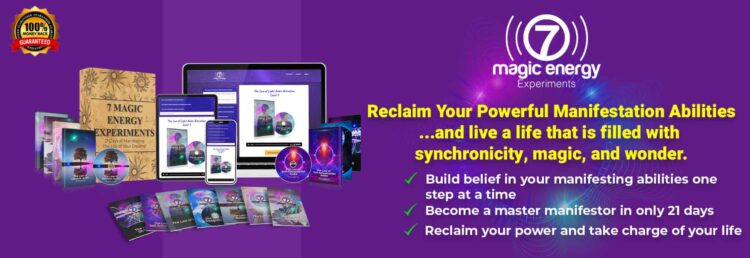Mindfulness is not the same as relaxation. Even though both are mind-body practices and are often mentioned synonymously, they are generally practiced with different goals in mind.
Having said that, some mindfulness practices are used as a way to achieve a more relaxed state of being. And some relaxation techniques do require that the practitioner becomes more mindful of their mental and physical states.
Confused? Let me break it down for you.
Is Mindfulness The Same As Relaxation?
Mindfulness practices are about accepting ‘what is.’ This means that if we are tense or stressed, we notice it and allow it to be as it is without any desire to change it. Whereas relaxation techniques actively seek to reduce tension and stress from our bodies and minds. And many relaxation techniques do include a component of ‘mindful’ awareness of our current state of being and then actively work to change it.
Mindfulness is more about self-awareness, discovering who we are NOW, and our place within our environment. It’s a much broader concept than just wanting to chill out and relax. Many of the techniques are about acceptance of things as they are, about learning to be at peace at this moment, which is also the sole goal of all relaxation processes.
– Mindfulness… learning to be at peace with things as they are.
– Relaxation… learning techniques to change your state of being to become more at peace.
Mindfulness
According to NIH: National Library of Medicine: “Mindfulness meditation is a 2500-year-old practice grounded in Eastern philosophical and ethical traditions, particularly vipassana meditation practices of Buddhism. It is derived from the Pali word sattipathana, which loosely translates to ‘remembering.’”
According to John Kabat-Zinn, mindfulness is “the awareness that arises through paying attention, on purpose, in the present moment, non-judgmentally.” I.e: It’s about experiencing how we are relating to ourselves and our environment.
This means we focus our attention on how we are feeling, mentally, emotionally, and physically. We become purposefully aware of our environment without having an opinion on what we are experiencing.
The benefit of this is that when we notice things as they are, we forego the need to categorize what is happening as either good, bad, or anything else. We are just observing, smelling, tasting, touching, and hearing with no judgment….. just experiencing ‘what is.’
Our mindfulness practice, or state of increased attention, may lead us to notice that our body contains some areas of tension while other parts may be relaxed. We may notice that the neighbors are playing loud music, that it’s becoming colder, that our left leg is going numb, etc…..
…. and through our practice, we will try to keep our relationship to what we are experiencing ‘non-reactive.’ This means we will not engage with what we are experiencing in our typical habitual ways.
Why? Because it is our normal responses to many daily experiences that are causing us tension, stress, and therefore suffering. And this is what we are wanting to avoid by learning to come into a mindful state.
Relaxation
Relaxation is about actively letting go of, or releasing, mental and physical tensions, resistance, and stress. The only end goal is to be free from or at least reduce our suffering (these unwanted states.)
Relaxation techniques also require that we become aware of our thoughts, feelings, or emotions in the present moment, just as mindfulness practices do. To achieve this we can use various techniques including:
 – We may learn to focus on our breath or practice specific breathing methods to induce a relaxed state.
– We may learn to focus on our breath or practice specific breathing methods to induce a relaxed state.
– We may engage in a body scan to progressively ‘let go’ of tension in our muscles and tissues.
– Listening to soothing music, a mantra, a guided meditation, or a hypnosis track specifically for relaxation can definitely help induce the required state.
– Many of us already have activities that we recognize can help us to relax. I choose to practice yoga and meditation, while my mum loves to do gardening or read a book. My sister says that cooking is a great escape from a busy work schedule. And my brother loves nothing more than to go fishing to clear his head and help him relax.
Which One Should You Practice, Mindfulness Or Relaxation?
Which practice is most suitable for us depends on our goals.
Are you wanting to develop a practice that develops over time and leads to greater self-awareness and personal growth and development? Then choose mindfulness.
Or are you just wanting to feel relief from stress at this moment? You can achieve this with any of the relaxation practices.
However, as already mentioned, there is a lot of overlap between mindfulness and relaxation practices.
 While mindfulness practices can and often do bring about a sense of inner peace and calm, it’s not always the case.
While mindfulness practices can and often do bring about a sense of inner peace and calm, it’s not always the case.
Depending on what stresses we have in our lives, and their intensity, becoming mindful can sometimes bring unpleasant thoughts, feelings, and emotions to the surface, directly into our conscious awareness ‘at this moment.’ And, initially, while we are still new at this and learning about ourselves, this can suck big time!
However, with time, we come to understand that:
‘I am not my thoughts or feelings….. these are just things I am experiencing at this moment!’
This understanding allows us to become detached from, and therefore non-reactionary to our thoughts and feelings. And as we progress, we will notice that they are not permanent. They are not who we are….. and like all things, they will change….. ‘THIS TOO WILL PASS!’
Yes, with practice, what we used to think of as ‘negative stuff’ will lose its grip on us as we no longer habitually unconsciously react to it. With time the suffering will begin to fade from our experience and be replaced by a greater sense of well-being and equanimity.
And while that sounds pretty good, keep in mind that mindfulness is not always a quick or easy road to feeling better or more relaxed. It is, however, a better long-term solution, a personal development journey that addresses the unpleasant issues we have acquired throughout our lives.
To Sum Up:
– Both mindfulness and relaxation eventually lead to a reduction in stress. And this of itself is a great reason to begin performing either one or both practices.
– Less stress in our lives means we will naturally become happier and healthier.
– Relaxation practices can produce immediate benefits in terms of releasing tension, stress, depression, anxiety, etc. Whereas mindfulness, while eventually getting us there, may take a longer route… a route that will lead to personal development and a greater sense of overall wellbeing.
– Mindfulness teaches acceptance rather than avoidance of the things we consider unpleasant in our lives. And with acceptance comes the realization that these things are ‘not-so-bad-after-all.’ They are just another component of living on earth in a physical body. And through acceptance, we get relief from suffering.

– Acceptance of our issues allows us the option of choosing how to respond, rather than reacting mindlessly (on auto-pilot) as we may have done in the past.
– Relaxation requires us to actively place our attention on something more pleasant or soothing in the moment to achieve the desired relaxed state.





